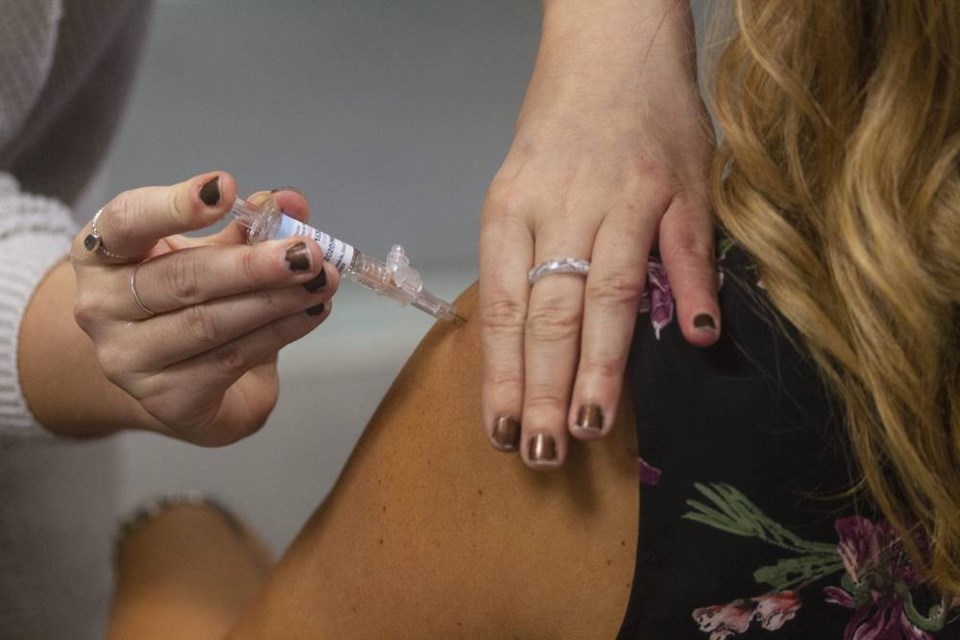From mid-March to mid-April, as many as 70 to 80 new cases of COVID-19 were being reported daily.
While those figures declined to the low teens between May and early July, since then we’ve seen a slow climb back up again. By late September the number of new cases had reached as high as 170 per day.
In part, this might be due to increased rates of testing. In essence, some infections are being found that would earlier have gone undetected.
However, there is no question that after falling off during the summer months, the virus is making a comeback.
Other provinces, and other countries, are seeing a similar spike.
Fortunately, our health care system has made progress in treating the disease. As of Oct. 1, there were only 69 COVID patients in hospital. In March, when the case load was only half as high, we had as many as 150 patients in hospital on any given day.
Nevertheless, public health officials fear that when the annual flu season ramps up, we could be facing a double threat.
For that reason, in part, some of the closures and distancing measures that had been relaxed are being brought back.
All nightclubs and stand-alone banquet halls have been ordered closed.
Liquor sales in bars, pubs and restaurants must stop by 10 p.m. And music in these facilities must be turned down, because forcing patrons to talk more loudly is known to increase the spread of the virus.
As well, outdoor gatherings of more than 50 people are banned.
These steps appear to represent a fair balance between containing the virus and preserving as much of our economy as possible. Though the longer this lasts, the more irreversible must be the damage to business sectors like hotels, restaurants and airlines.
Fortunately, there is some reason for optimism.
The southern hemisphere began its flu season several months ago, and the results are remarkable. In some southern countries, flu rates have fallen precipitously.
Chile has recorded 1,134 flu-like infections so far, compared with 20,949 during the same period last year.
Flu cases in Argentina are down 64 per cent from last year, while flu hospitalizations have dropped 60 per cent in Brazil.
South Africa hasn’t even recorded enough cases to declare the disease present.
And between January and July this year, Australia had just 36 flu deaths, compared to 383 in 2019. New Zealand reports more of the same.
Some of this is due to remoteness, in particular the experience in New Zealand and Australia. Both of these countries also had low COVID case counts.
But Chile and Brazil had huge COVID death rates — among the highest anywhere.
Public health researchers believe the measures taken to fight COVID also helped reduce flu infections.
The threat of two pandemics occurring at once so far hasn’t materialized.
What might this mean for B.C.?
Certainly we don’t have geographic isolation to count on, though Vancouver Island has been spared the worst.
And our kids are back at school. It remains to be seen what effect that will have.
While no child under 19 has died of COVID in B.C., younger people are increasingly a source of transmission, in part because they socialize more freely.
Most likely it comes down in the end to getting an early flu vaccination. Most people will be eligible for a free shot.
Yet a recent survey in Vancouver found that only half of all parents were planning on getting their children inoculated. And most years the uptake among adults across the province is around 40 per cent.
Even in high-risk groups like seniors, coverage is usually only 70 per cent.
It is essential we do better this fall — far better. Everyone has a duty, both to themselves and to others, to get a flu shot.
Last month, 11 students at the University of Victoria were fined for partying outdoors without proper distancing.
If we are willing to do that, we should be willing to take similar steps with people who refuse to get vaccinated.
This is our best chance of staying well, and hopefully preventing the imposition of more severe shutdown measures.



